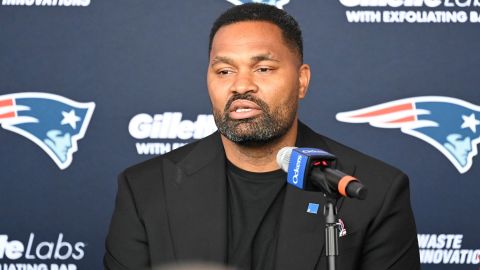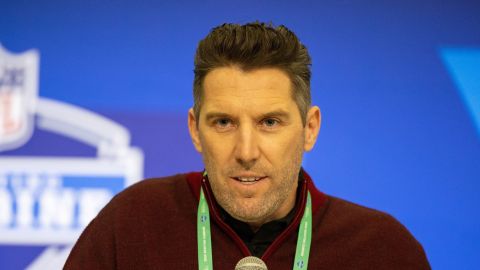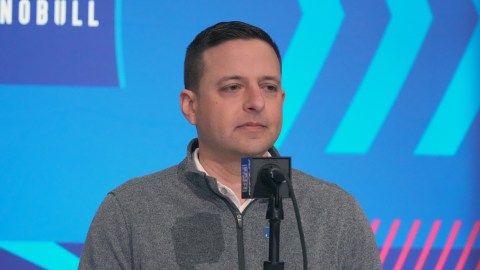It's rare that you'll see Bill Belichick get outcoached.
It's even rarer to see Bill Belichick outcoached by a man who hardly spoke on the opposing sideline for the duration of a game.
That is, essentially, what took place on Sunday night, though not solely for the obvious reason.
The decision to go for it on fourth-and-two on the New England 28-yard line will be dissected and debated for at least the next seven days. The fact that the Patriots came up short means it will likely become a discussion point in January, when the Patriots likely won't have the benefit of home-field advantage or a first-round bye.
But the costly decisions didn't begin there. With a 10-point lead and 12:14 left on the clock, the Patriots' biggest opponent was the clock. Yet the Patriots called for five out of their next seven plays to be passes. Four resulted in completions, one resulted in a nearly fatal strip and sack and the last one turned out to be incomplete (also nearly resulting in an interception that likely would have been returned for a touchdown).
The Pats, who had been moderately successful running the ball, abandoned the ground game in hopes of setting up Tom Brady to win it for them. It didn't work.
The Patriots were bailed out, of course, when Jonathan Wilhite picked off an errant Peyton Manning pass. At that point, the game seemed over.
With a chance to milk the clock and add to the lead, Belichick and the Patriots relied a little more on the running game, but passing plays were still called on three out of six downs. The final pass fell incomplete, and the Patriots settled for just a field goal.
Then, of course, came the fourth-down call. Twice, Belichick had given Brady the opportunity to win the game; twice, Brady couldn't deliver. Rather than accept what his eyes were telling him and punt the ball away, Belichick went with his gut feeling.
"We tried to win the game on that play. Tried to pick it up right there," Belichick said after the game.
Belichick also hinted that he would have liked to challenge the play, which he was unable to do after the Patriots had burned their final two timeouts in the previous series.
"I don't know how we could not get a yard on that completion, but I guess we didn't," the coach said.
His quarterback appeared to agree with the decision to go for it.
"Well, we had an opportunity to win the game, and that's all you can really ask for as an offense," Brady said.
Such a position is one you'd expect out of a player in the heat of competition. A player will want to go for it on fourth down 10 times out of 10. That's where a coach is supposed to step in, make the smart decision and put his team in the best position to win the game.
But Belichick had been playing against the percentages for the entire fourth quarter. It seemed as though he believed that his team wasn't a standard football team, that the Patriots were something more and that the numbers, stats and history didn't apply to them. It was, without question, Belichick showing at least a touch of hubris.
And as everyone learned on Sunday night, the rules, stats, numbers and percentages all apply to the Patriots.
That's not to say that Belichick's call is 100 percent indefensible. He may have been hesitant to hand the ball to Laurence Maroney after his fumble in the end zone in the third quarter. He may have liked the play that was called (a play that both Brady and Belichick said they had spent a lot of time working on). He may have trusted his offense a great deal more than he trusted his defense.
But the ultimate measuring stick in determining a bad call is found when the hypothetical situation is played out to the fullest extent. For example, had the Patriots punted and had the Colts driven 70 or so yards down the field to win the game, not one person in the country would look back and say, "Belichick should have gone for it on fourth down."
The blame might have been placed on Maroney or the defense, but nobody would have pointed to Belichick for making the wrong call to punt.
Instead, the decision can be directly blamed for a loss, one that is troubling for a number of reasons, not the least of which is the fact that the 2008 Patriots lost this type of game several times. Last year, the Patriots beat all the mediocre teams and lost to the contenders — something that ultimately cost them a postseason berth.
This season, it would take a disaster for them not to win the AFC East, but Sunday's mistakes all but guarantee that it will be an uphill climb if they hope to find themselves playing for a Super Bowl.



